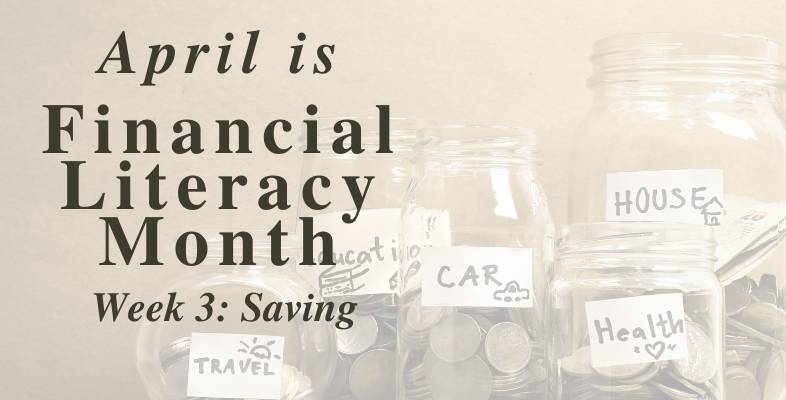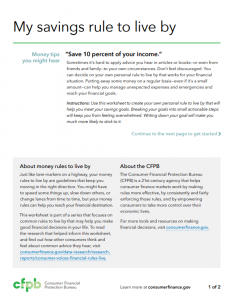
How to Save Money
Last week we shared some information about knowing where each of your dollars go, also known as budgeting (click to go to the post)! In that blog we mentioned that you should always pay yourself first, also known as saving. Today, let’s talk about learning how to save money.
As shared on the Consumer Financial Protection Bureau (CFPB), last year 60% of US households suffered a financial shock –a large, unexpected bill. This bill then put their financial future in jeopardy because there were no savings. Bills were paid with credit cards or loans, and this increased the household debt. But you can work on becoming more financially secure—preparing for the unexpected–by creating an emergency fund. My dad used to call this “saving money for a rainy day!”
The CFPB offers strategies on how to create an emergency fund, creating an emergency fund by using your tax refund, how to open a savings account in a bank or credit union, and they even offer a printable, goal-oriented, “Savings Booklet”. Visit this page to learn more. As you learn to create a system of saving money, you can teach your children and other family members how to do so!
Keep exploring:
 Here are some other great printables and savings topics from the CFPB to read about:
Here are some other great printables and savings topics from the CFPB to read about:
Create Your Own Savings Rule – making a promise to yourself as to how much you will save.
My New Money Goal – A way to create a financial plan, or to tweak one that you have created. Think of it as a “road map” to your financial security!
Want to learn more about how to save money? Sign up with CFPB to attend their Savings Boot Camp, a six-step, all-email course that will teach you the fundamentals about saving! You can do it!
York County Libraries wishes to thank the Consumer Financial Protection Bureau for allowing us to share their information with our community.
And… Just a reminder:
You can also borrow books about budgeting from your local library! Check out our list by clicking here. They were selected by our experts at York County Libraries and cover everything from the basics to more complex topics like investments and retirement planning.
Also:
Money Smart Week is hosting several webinars focusing on a variety of topics. When you register for a webinar, you can include questions for the presenters. These webinars will be recorded and archived. Registrants can watch them at a later date, if you can’t make the live session. Registration required.
